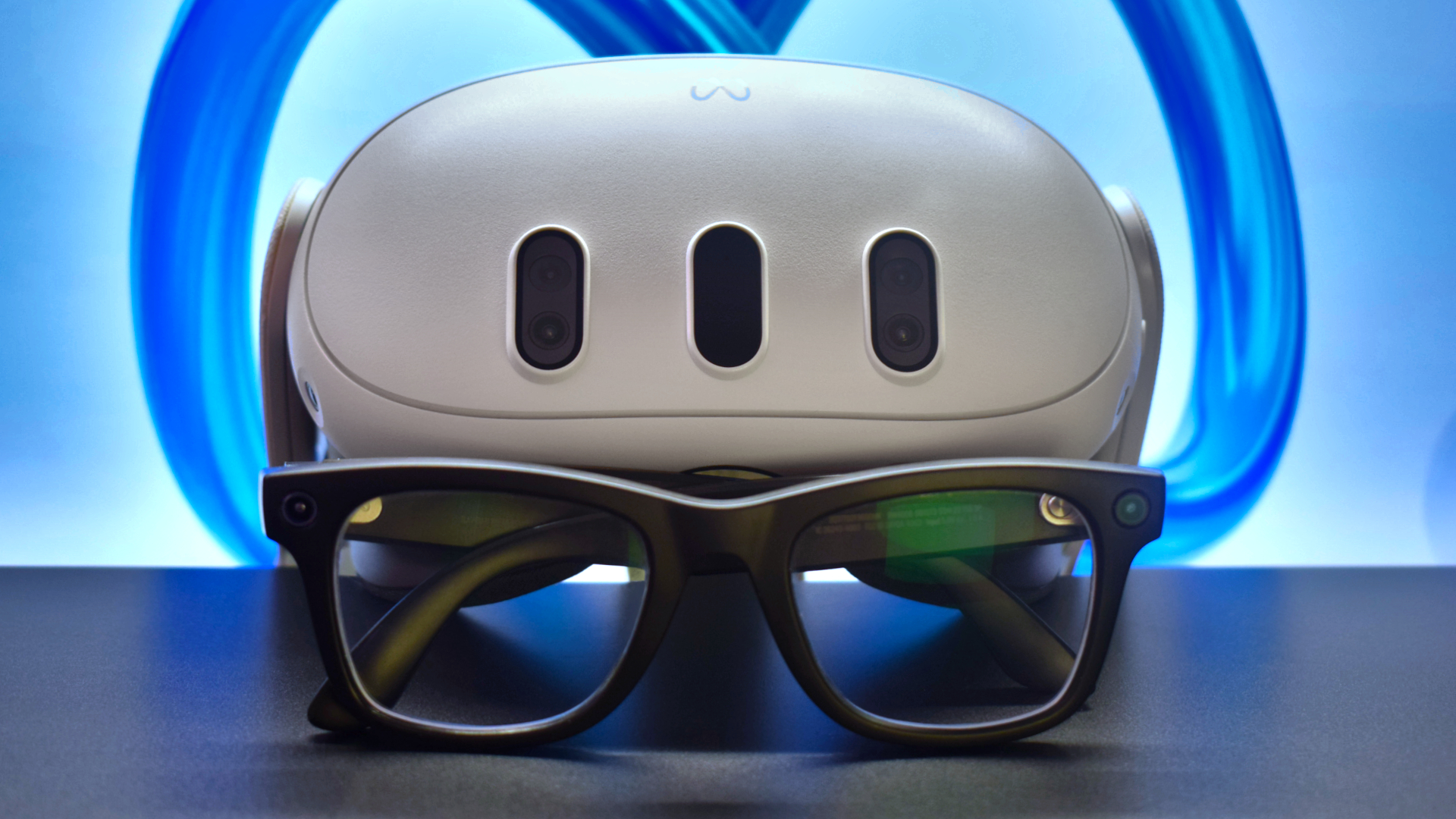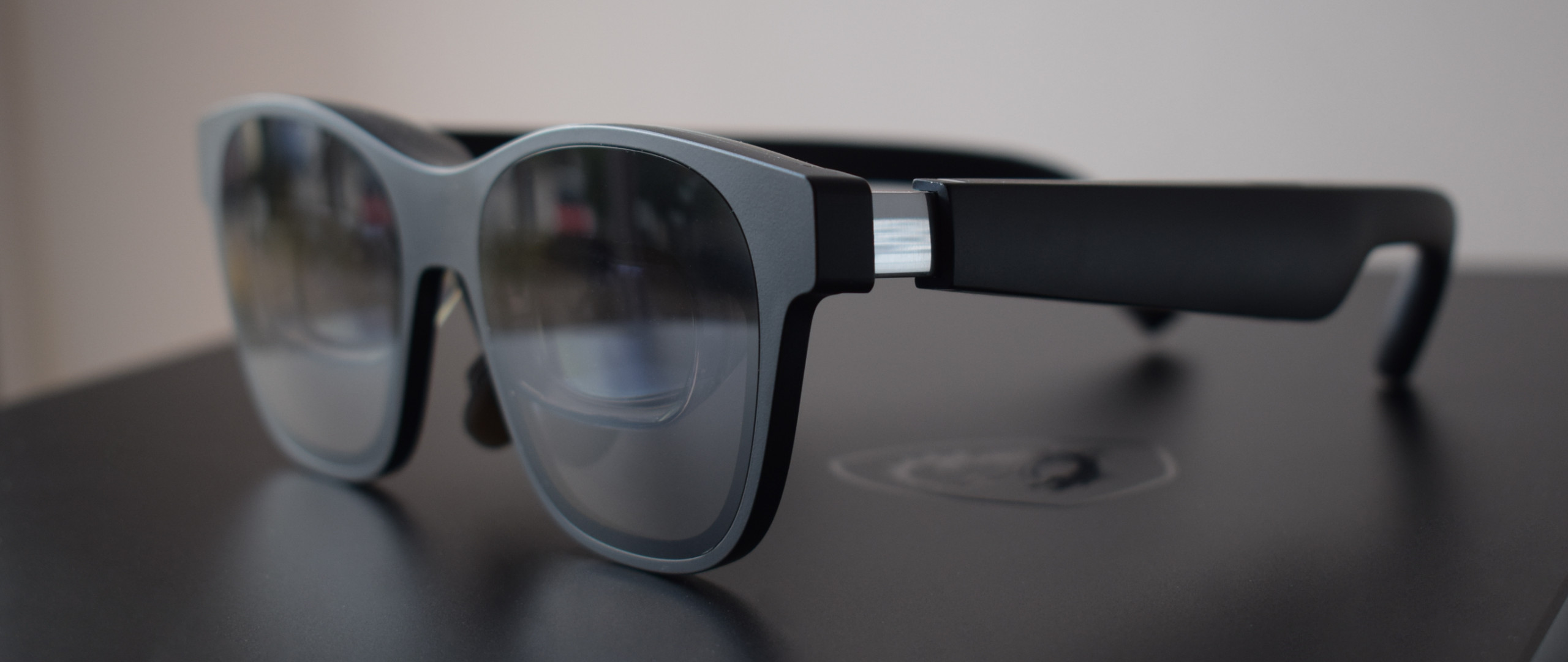The biggest threat to Meta Quest headsets isn't Apple — it's Meta
Smart glasses or VR headsets, pick a lane Meta

When Facebook acquired VR headset maker and Kickstarter darling Oculus in 2014 for $2 billion, the internet just about lost its damn mind. Former backers screamed boycott, Minecraft maker Markus Persson pulled back on plans to port the popular title to the platform, and the Farmville VR jokes practically wrote themselves.
Flash forward to the present day, and the only creatures on this Earth with more egg on their faces are chicken embryos. Now rebranded as Meta, the company that lured Oculus away from creator Palmer Luckey has turned his vision into a reality and then some.
According to Meta's vice president for VR, Mark Rabkin, nearly 20 million Quest headsets had been sold by February 2023 — a milestone that the company is likely to have long left in its shadow by now as the Quest 3 is estimated to have sold at least one million units after First Encounters' (an app that acts as an introduction to the headset's features and setup) total player count hit seven figures for the first time in June of this year.
However, Meta's remarkable success in the realm of virtual and augmented reality headsets is just the beginning. Or, could it potentially be at its end?
Meta's biggest competition isn't Apple, it's Meta
Meta's success is undeniable. Of the nearly 20 million Quest headsets it has shipped, company CTO Andrew 'Boz' Bosworth claimed that the Oculus/Meta Quest 2 "Outsold not just its predecessor, but all of its predecessors combined" within just a few months of release — positioning it as an impressively popular game console that isn't too shy from rivaling the more established Xbox Series X/S which also released in 2020.
Perhaps the reason we don't view the Meta Quest platform as a more prominent player in the console scene is its lack of major first-party titles. As PlayStation and Xbox fanboys would bicker online about which one of the other "Has no games," Quest owners would awkwardly avoid eye contact and try to merge into the background. I don't care how good you think Gorilla Tag is, it's no God of War Ragnarok.
As PlayStation and Xbox fanboys would bicker online about which one of the other "Has no games," Quest owners would awkwardly avoid eye contact and try to merge into the background
While Meta's social-media mentality and push for social interactions through the Metaverse could explain this, the reasons why are irrelevant. The fact is, outside of particular PCVR titles, Meta's Quest platform lacked a AAA gaming presence — until recently, that is.
Sign up to receive The Snapshot, a free special dispatch from Laptop Mag, in your inbox.
By the end of the year, Horizon OS (the operating system for Meta's quest headsets) will host a wide range of titles from familiar franchises, including The Walking Dead, Alien, Hitman, Ghostbusters, Assassin's Creed, and even an Arkham universe title in Batman: Arkham Shadow.
Most impressively, many of these big-name titles are exclusive to Meta's headsets, and their release could coincide with a cheaper Meta Quest 3S headset, which is expected to be unveiled at next month's Meta Connect 2024 event.
2024 is a make-or-break year for VR, and this groundswell of AAA titles emerging onto the scene could be vital in tipping the scales in favor of Meta's headsets coming out smelling of roses. If they aren't completely consumed by the shadow of a different product — and no, I don't mean Apple's Vision Pro.
The biggest threat to Meta's Quest headsets isn't Apple; it's Meta.
Meta Connect-ing the dots
VR has been on the precipice of enjoying a spell in the mainstream spotlight for years, but has always lacked that little something extra to truly break out from its niche labelling and claim the many flowers and laurels it truly deserves.
Earlier in the year, I spoke to Emily Wang, co-founder of AR smart glasses company VITURE (responsible for the impressive VITURE Pro XR Glasses). They spoke of the struggles faced by VR and AR-focused devices when finding a mainstream audience. Stating, "We see the market booming as more and more people are excited about it, but another hurdle we've hit is that people have to see it to believe it."
Quest headsets are set to become even more accessible, and even more attractive thanks to a whole new lineup of exclusive AAA-tier games
Wang is spot on the money, and I think Meta is aware of this. That's potentially why they're seeking to release a more affordable Meta Quest 3S, while shelving a more expensive follow-up to the Meta Quest Pro. Quest headsets are set to become even more accessible, and even more attractive thanks to a whole new lineup of exclusive AAA-tier games becoming available on the platform.
This makes Meta Connect 2024 one of the more pivotal moments in VR/AR history, and could finally see the platform break the glass ceiling and emerge as a genuine competing game console to established platforms. There's just one problem, and its name is Orion.
Looking ahead. Way ahead.
Right off the bat, Meta's Orion smart glasses are reportedly years away from being consumer ready. However, that hasn't stopped them from being hailed as "The most advanced thing we've ever produced as a species" or the "Holy Grail" by Meta's Andrew 'Boz' Bosworth and CEO Mark Zuckerberg respectively.
Reportedly, these AR smart glasses are the real deal, delivering a full, true AR experience similar in capability to the Meta Quest 3, while maintaining a similar (yet much chunkier) form factor to the company's Ray-Ban Meta Smart Glasses.
They're also likely to be not all that consumer-friendly when it comes to pricing, as they're incredibly advanced and rely on a lot of expensive components. They may, however, be the dawn of a new era for wearable tech, and a potential iPhone moment for smart glasses that elevates these devices to the upper echelons of the tech world.
Which sounds great. We love seeing new tech, and love getting excited about new and impactful devices that have the potential to dramatically impact the fairly static norms of the day. However, what's not so great, is that Meta is reportedly planning to unveil these glasses on stage next to it's boxy, budget Quest 3 alternative.
Smart glasses or VR headsets, you can't have them both
Do you not want to sell your cheaper, bulkier Quest 3S headset? Because this is how you don't sell your cheaper, bulkier Quest 3S headset. In fact, this isn't how you sell headsets at all. This is how you let audiences know that what you're offering and positioning as a viable option to other game consoles, will be completely irrelevant in four or so years time, so buy a PS5 Pro and just wait it out until then.
This reeks of how the Quest 3 was officially debuted. All-too-eager to beat Apple to the punch, Meta CEO Mark Zuckerberg took to Instagram to unveil the new headset in full, hours before the company's Meta Quest Gaming Showcase was set to take place.
Naturally, the news of a new headset completely steamrolled the event and diverted attention away from all of those vital pieces of software that the Quest platform so desperately needed to remain relevant.
Once again, with a new catalog of AAA titles in the works and a powerful yet accessible headset ready to go, Meta is willing to toss all that to one side to bring the attention to its newest toy — even if it risks hurting itself in the process.
I'm a massive proponent for smart glasses, but even I have to suggest that maybe we should let the Quest have its moment to shine. I'm not saying don't reveal Orion to the public. In fact, I think the hype that a product like this could drum up would only help attract a wider audience to the tech. But it just doesn't have to be unveiled at the exact same event.
It's back your Quest headsets, or distract from them with your magical future tech glasses. Smart glasses or VR headsets, Meta. You can't have them both.
More from Laptop Mag
- Rumored Meta Quest headset sounds like the Vision Pro that Apple wasn't ready to make
- New Meta Quest headset said to have one major drawback
- Meta Quest headsets just became a vital accessory for PS5, Xbox, and Nintendo Switch consoles

Rael Hornby, potentially influenced by far too many LucasArts titles at an early age, once thought he’d grow up to be a mighty pirate. However, after several interventions with close friends and family members, you’re now much more likely to see his name attached to the bylines of tech articles. While not maintaining a double life as an aspiring writer by day and indie game dev by night, you’ll find him sat in a corner somewhere muttering to himself about microtransactions or hunting down promising indie games on Twitter.


